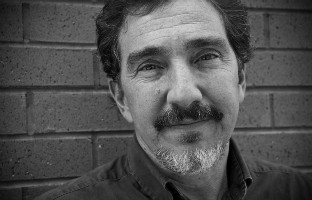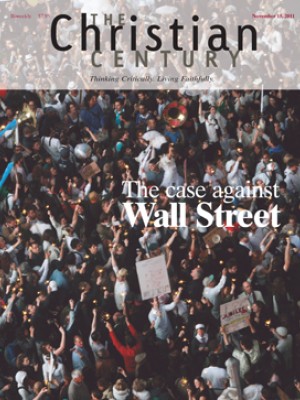The missing martyrs: Islam specialist Charles Kurzman

A professor of sociology at the University of North Carolina at Chapel Hill, Charles Kurzman specializes in Middle East and Islamic studies and has studied Muslim-American communities in the United States. He wrote The Unthinkable Revolution in Iran and edited Modernist Islam, 1840–1940: A Sourcebook. His most recent book, just published by Oxford University Press, is titled The Missing Martyrs: Why There Are So Few Muslim Terrorists.
The subtitle of your new book refers to there being "few Muslim terrorists." Why do you say few?
Because terrorism is not nearly as widespread as many people feared it would be after 9/11. In fact, terrorists' websites complain about Muslims' failure to join the revolutionary movement.
Read our latest issue or browse back issues.
What kind of numbers are we talking about?
The figures I find interesting are the number of deaths by violence per day by terrorism compared to the number of deaths by violence overall. According to the World Health Organization, 2,000 people die each day by violence around the globe. According to the National Counterterrorism Center, the number of deaths per day by terrorism peaked at 63 in 2007 and has shrunk to half that.
Where do most terrorist murders occur?
In three countries: Afghanistan, Iraq and Pakistan. Excluding those countries, the daily death toll from terrorism peaked at just over 20 per day. The 2010 figure for terrorist deaths outside those three countries is 13 per day. The figure for the U.S. is even more striking—since 9/11, terrorists have killed only 33 Americans.
Let me stress that each of these deaths is a terrible tragedy. By putting these numbers in context I don't want to minimize them. But people are disproportionately focused on what is a relatively small factor globally and in the U.S.
How do you explain the relative rarity of terrorism?
Most Muslims do not want an Islamic government imposed by force. They strongly support a free press, free association and other aspects of liberal politics. Mainstream Muslims are culturally conservative, so they share some concerns with the goals of revolutionary Islamic movements, such as prohibiting the use of alcohol. But cultural conservatism is generally combined with a pro-democracy viewpoint.
There are other Muslims who might not mind an Islamic government but who oppose the use of violence. Their numbers go up each time al-Qaeda uses violence against Muslims.
Why is terrorism still a weapon of choice in Afghanistan, Iraq and Pakistan?
Those countries have active revolutionary movements that have a territorial base from which to launch attacks. Their strategy is to create polarization through violence. They want to do things that are so outrageous that people will either join them or oppose them. They feel that this polarization will hasten the revolution.
This strategy is not peculiar to radical Islam. It was used by communist movements, and it was pioneered by anarchists in the late 19th century.
It seems that Islamophobia in the U.S. has grown since the aftermath of 9/11, even though terrorism has not.
From what I've seen, Islamophobia has increased, but so has tolerance. You get different answers depending on how pollsters ask their questions.
If you ask, "Do you have a favorable or unfavorable view of Islam?" the number who say "unfavorable" has gone up somewhat since 2001. It used to be under 40 percent, now it's over 40 percent. At the same time, the number of those who say "favorable" has held steady since 2001—also at somewhat over 40 percent. What has changed is that the number of people who say they don't know has gone down. A lot of "don't know's" have moved into the "view unfavorably" column.
However, if you ask, "Do you have a favorable or unfavorable view of Muslims?" the response is "favorable" by a 2-1 margin, and it's been that way since 2005. In the 1990s, those with an unfavorable view would have outnumbered those with a favorable view.
You mention Muslims' support for liberal politics. What's the future of liberalizing forces in the Muslim world? What do you see coming out of the Arab Spring?
We've seen for years that there is a large unmet demand for democracy in many Muslim societies. In Egypt, for example, well over 80 percent say democracy is their preferred form of government. These were the people who objected to the manipulations of the Mubarak regime. The alliance against Mubarak included the Muslim Brotherhood, which wants democracy in order to implement culturally conservative laws, and secularists, who are betting that democracy will lead to secular legislation. It remains to be seen how that alliance will play out.
It's important to remember that democracy is distinct from rights. Democracy is the rule of the majority, while rights define the limits of what majorities can do. A declaration of rights was an afterthought in the making of the U.S. Constitution. We can't expect that other societies will necessarily vote for our vision of rights.
Don't Muslims use the language of rights?
The language of rights has been globalized to such an extent that it's hard to escape it. Even dictatorial regimes talk about rights, though they fail to protect them. Members of the Muslim Brotherhood have come to appreciate the value of an autonomous legal system through their own experience with repression and arbitrary rule. But we don't know if the Muslim Brotherhood will commit itself to protecting rights if it gains power—that's one of the questions that Egyptians themselves are asking in the run-up to elections there.
You say in your book that hostility to the U.S. in the Muslim world is so entrenched that changes in U.S. foreign policy one way or the other don't much matter.
It's been a long-standing view in many Muslim societies that the U.S. is a superpower that is hostile to Islam. This view is based on military and clandestine actions by the U.S. over the years that many Americans have forgotten but are widely recalled and resented by Muslims—actions in Lebanon and Iran, for example. As a result, many Muslims mistrust American policies, even those that we might think they would favor. For example, the U.S. got very little credit in the Muslim world for intervening to help Bosnian Muslims in the 1990s. Approval ratings of U.S. foreign policy were so low in many Muslim societies that the U.S.-led invasions of Afghanistan and Iraq couldn't push them any lower. But at the same time, many Muslims embrace American institutions such as democracy and pop music.
What can the U.S. do to encourage democracy in Muslim countries?
The dilemma is that when the U.S. tries to promote an agenda of rights and democracy overseas by associating with any particular reform group, that group is viewed as a tool of American imperialism. The U.S. needs to listen to the reformers and ask them what they would like the U.S. to do.
For example, the Green Movement in Iran made it clear that it did not want open support from the U.S. It wanted words of support and no more. The Obama administration seems to have listened. It is significant, to take another case, that the U.S. engaged militarily in Libya only at the invitation of the Arab League.
How would you assess the threat of homegrown terrorism in the U.S.? Are there signs that radical Islamic militancy is gaining footholds in the U.S.?
It is easy for someone to launch a plot, call it jihad and gain national media attention. Since 9/11, almost 200 Muslim-Americans have engaged in violent plots, most of these aimed at targets abroad. Several of these plots have resulted in fatalities in the U.S.—33 deaths in all. When compared with the 150,000 murders committed in the U.S. since 9/11, this does not represent a major source of violence. Al-Qaeda and other terrorist organizations have actively tried to recruit American Muslims, but over the past ten years we have not seen evidence that they are succeeding.





